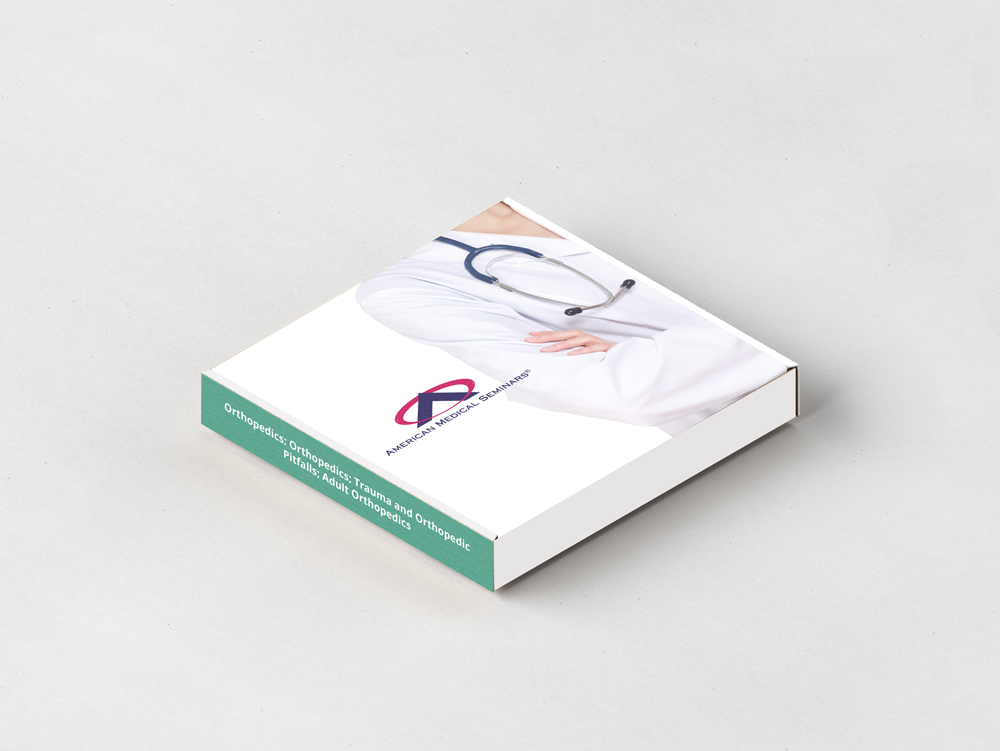Product Description
Title: Emergency Medicine – Orthopedics: Orthopedics; Orthopedic Pitfalls; Adult Orthopedics
Faculty: Kenneth H. Butler, D.O., F.A.C.E.P., F.A.A.E.M., Joel Kravitz, M.D., F.A.C.E.P., F.R.C.P.S.C., Andrew D. Perron, M.D., F.A.C.E.P., F.A.C.S.M.
Original Release Date: July 1, 2019 Expiration Date: July 1, 2022
TOPIC 1: Being “Hip” On Ortho.
Upon completion of this session, the participant should be able to: COMP ^
- Assess if this is just another “found down” patient.
- Identify which fractures have the highest “missed” rate.
- Determine when ultrasound is better than a plain film.
TOPIC 2: Trauma and Orthopedic Pitfalls – Injuries Not To Be Missed.
Upon completion of this session, the participant should be able to: COMP
- Detect subtle injuries that, unless treated, can have impact on long term musculoskeletal function.
- Determine and treat subtle presentation of severe traumatic and neurologic injuries.
- Distinguish particular injury patterns to avoid missing correlated injuries in a traumatically injured patient.
TOPIC 3: Adult Orthopedic Pearls and Pitfalls.
Orthopedic injuries are a frequently seen complaint in the Emergency Department. The vast majority are straightforward to diagnose and manage. There are some injuries, however, that are more subtle in presentation and more complicated to manage. This session will focus on the latter group of injuries. Upon completion of this session, the participant should be able to: EBM, COMP
- Detect the presentation and diagnostic pitfalls associated with posterior shoulder dislocation.
- Determine an appropriate work-up of compartment syndrome and distinguish the myriad ways it can present.
- Appraise those at risk for knee dislocation and relate the time-imperative for reduction.
- Demonstrate understanding of the work-up and evidence-based treatment for native hip dislocation, as well as occult hip fracture.
- The receipt for any incentive-associated purchase will designate the value of the gift card separately from the cost of the learning activity.
- This incentive may have implications on your tax reporting obligations. Any reimbursed amount must be declared as personal income for tax purposes.


